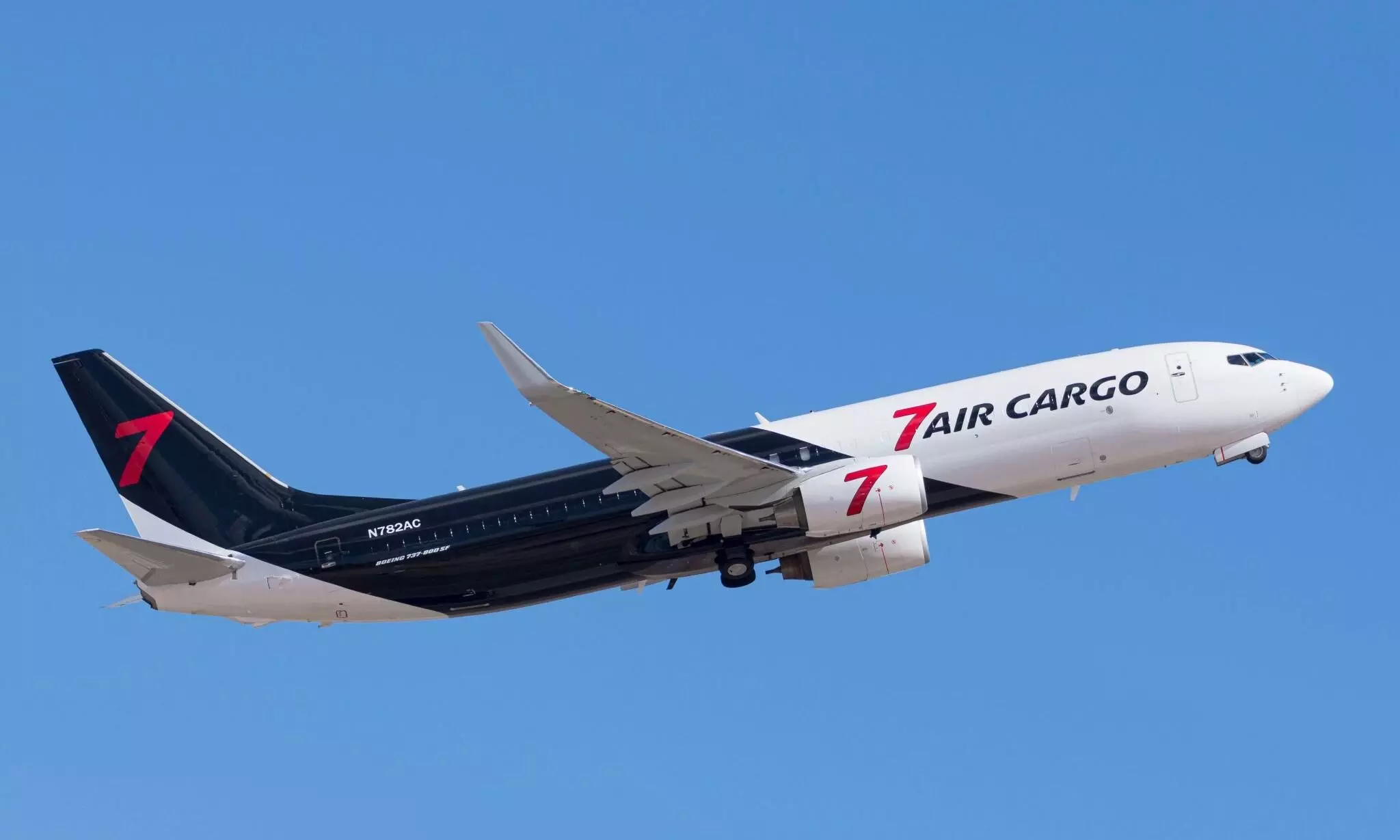
7 Air earns FAA Part 121 AOC, set to launch services
The cargo airline provides a comprehensive range of services, including ACMI, CMI, full charter, scheduled charters, and ad-hoc charters.

U.S.-based cargo airline 7 Air has received Federal Aviation Administration (FAA) Part 121 Air Operator Certificate (AOC). The airline conducted its inaugural test flight with a Boeing 737-800F, departing from Miami, FL, to Dallas, TX, in January this year.
The airline mentioned in a LinkedIn post that operations are set to take off as soon as next week.
7 Air has a fleet of two Boeing 737-800Fs, with one aircraft currently parked and the other active in service.
The 18.5-year-old aircraft currently in service, MSN 34799 and registered as N782AC, is a former Jet Airways Boeing 737-800. It was later operated by SpiceJet before being withdrawn from use on November 4, 2022. The aircraft was subsequently acquired by the leasing company Aircastle and converted to a freighter in November 2023. It was then ferried to 7 Air on September 19, 2024.
While the parked Boeing 737-800F, MSN 33471 and registered as N330FL, is 22.6 years old and was originally a Boeing 737-800 operated by Shanghai Airlines before being withdrawn from use on July 6, 2022. It was later acquired by the commercial aircraft and engine finance company Flight Lease, followed by another leasing company, Spectre Air Capital, which converted it to a freighter in November 2023. The aircraft was then ferried to 7 Air on September 25, 2024, according to data from Planespotters.net.
The airline provides a comprehensive range of services, including Aircraft, Crew, Maintenance, and Insurance (ACMI), Crew, Maintenance, and Insurance (CMI), full charter, scheduled charters, and ad-hoc charters.
According to the FAA, the agency grants the authority to operate scheduled air service through a Federal Aviation Regulations (FAR) Part 121 certificate.
Air carriers authorised under a Part 121 certificate generally include large U.S.-based airlines, regional air carriers, and all-cargo operators. All Part 121 air carriers must have an FAA-approved hazardous materials (also known as dangerous goods) programme.
Air carriers that choose to accept, handle, and transport dangerous goods in air commerce are required to develop a comprehensive hazardous materials programme covering all aspects of acceptance and transportation, as well as training for all employees.

